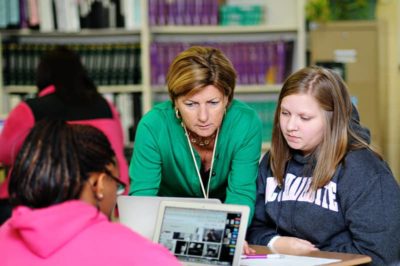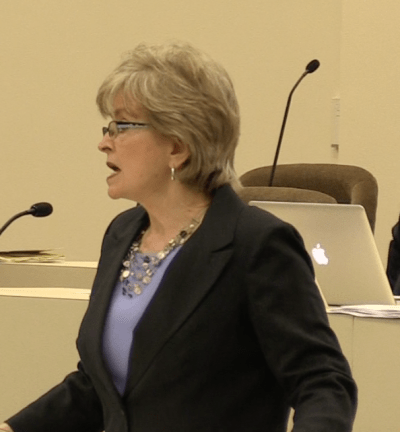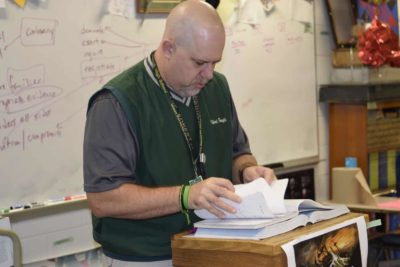Wouldn’t it be lovely if we had a documentary tracing the before and the after of Common Core? We as teachers understand this. Like any major change, we approached and accepted Common Core standards with trepidation. We understood that this change was a long time coming and that educators had been calling for it for a decade.
Our previous standards were notoriously plentiful, and nothing summed them up better than the “mile wide, inch deep curriculum.” Common Core standards, on the other hand, provided teachers with the opportunities to work within a skill, instead of multiple skills, and to provide differentiation for students within that skill. It provided us the time to allow students to explore, inquire, reseach and write.
Classroom teachers can tell you that, prior to the changes, writing was the piece that was often the last thing the teacher could get to and therefore the first thing to be set aside for tomorrow – should tomorrow ever come. We paid the price for this skill-based, frenzied curriculum. We paid in students’ abilities to write, research and truly be college and career ready.
The changes in standards came in response to what we had been observing when comparing our nation to others over decades. Our nation could not compete. Many of our students had not made it past the basics and into the application of what they had learned. They were not able to evaluate and challenge current theories and algorithms and express their observations and findings verbally or in writing.
Common Core has helped us turn the emphasis back on the student and the student’s ability to think and express himself. When Common Core arrived in North Carolina, I was an instructional facilitator tasked with introducing it at my school. There was resistance. There was questioning. We had all seen many initiatives come and go. But Common Core is not a strategy, theory or the latest craze. It is a guideline for what students need in order to be successful in the 21st century.
Those of us who knew it well would never have predicted that we could wash away such progress with political paranoia. Had we seen this coming, we might have poured more effort into combating misconceptions instead of creating and locating resources, attending professional development sessions, breaking down standards and creating instructional sequences and real-world tasks. In other words, we educators were arming ourselves with the tools required for proper implementation. A lot of us knew we were headed in the right direction, and that it was long overdue. We wanted to make this a successful and positive transition for our students.
Throughout my years as an instructional coach, I have seen students who did not know how to provide textual evidence to support their arguments become students who understood that was the expectation. I have met students initially dependent on teachers as the providers of information become explorers and problem-solvers. Common Core focuses on bringing the onus back on the child through strategies we know work.
Students have come to expect collaboration as part of their daily routine. They must know how to talk through their own preconceptions and how to weigh in on the credibility of the sources they are investigating. They must be able to arrive at conclusions they can articulately express to a variety of audiences. I have seen that emphasis make a huge difference in how students behave in the classroom.
Will the next steps in our children’s education be based upon the politics, paranoia and propaganda of those who are not even in the field of education? Regardless, educators will be assuring that our own students are armed with the ability to see beyond the loaded language and opinions based upon political agendas and asking them to apply the same criteria of credibility in this situation that we ask them to apply in the classroom (all Common Core standards).
As a result of Common Core, I hope the next generation will be wiser.
This op-ed was originally published in The News & Observer on January 29, 2016. It is reprinted here with the author’s permission.




